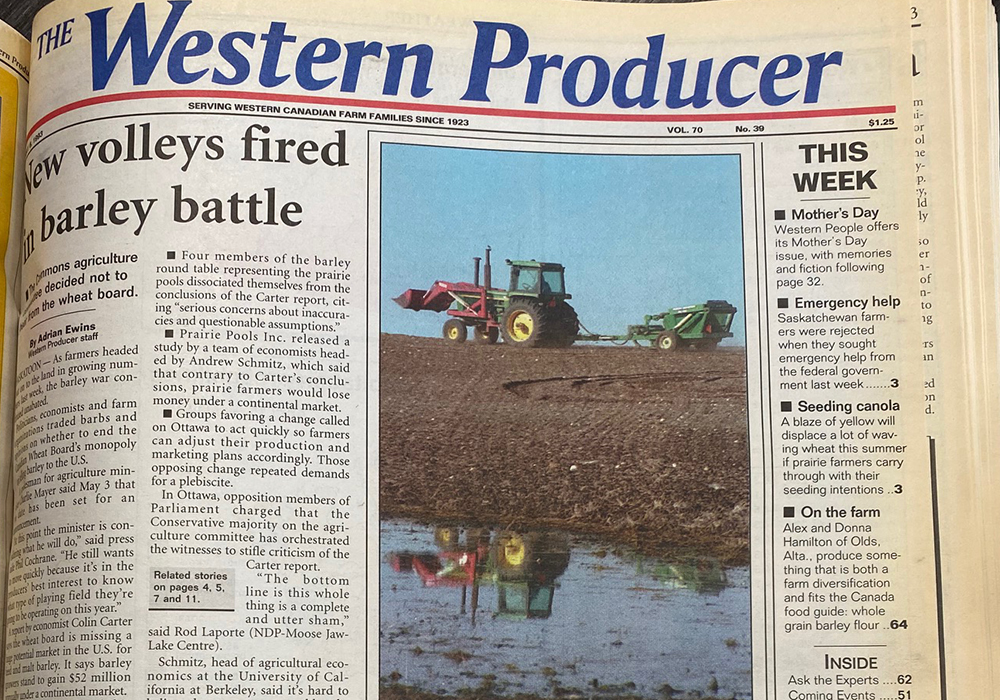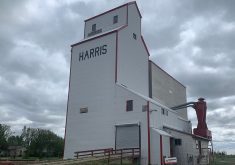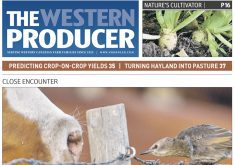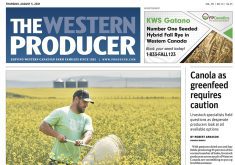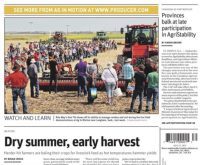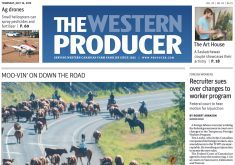For the next year, this column will mark The Western Producer’s 100th anniversary by taking a deep dive every week into a past issue of the paper.
Weather is a big part of our coverage at The Western Producer, and it’s not just about how Mother Nature can affect agricultural production.
Sometimes we also talk about the reliability of weather forecasts.
One such story ran in the May 6, 1993, issue.
Paul Bullock, director of weather and crop surveillance for the Canadian Wheat Board, said long-term weather forecasts were equivalent to a coin toss.
Read Also

Worrisome drop in grain prices
Prices had been softening for most of the previous month, but heading into the Labour Day long weekend, the price drops were startling.
In fact, as he said during a day of presentations about long-range weather forecasts at the National Hydrology Research Centre in Saskatoon, such a thing simply did not exist.
“There is absolutely nothing out there at all,” he told those attending the meeting.
“Don’t let anybody tell you they have any kind of reliable long-range prediction because there isn’t one of them, and there’s none shown here today that can give you something that will give you more than 50 percent of the variability.”
He pleaded with the experts for more valuable information.
“ I don’t think we truly know what affects all our weather,” he said.
“That’s why we’ve had limited success.”
It would be nice to think that the weather forecasting business has made some progress on this file in the last 30 years, but you never know.
The fight over the wheat board’s marketing monopoly was beginning to stir into life in the early 1990s.
The May 6, 1993, edition ran a story about the debate over whether to end the board’s monopoly on selling barley to the United States.
The Progressive Conservative government was considering doing so but hadn’t made a decision yet.
A report by economist Colin Carter had said Canada was missing out on significant feed and malting barley sales to the U.S. by keeping those crops under the CWB.
Four members of the barley roundtable representing the prairie pools disassociated themselves from the report, citing “serious concerns about inaccuracies and questionable assumptions.”
And so it began.

